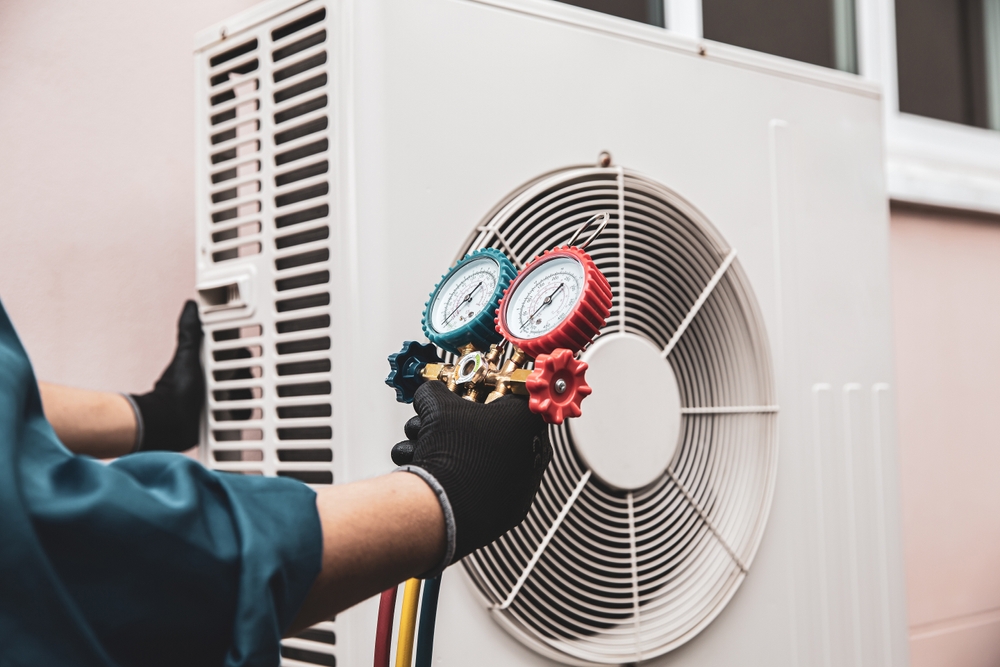What to Expect for HVAC Installation Cost?

When it comes to HVAC installation, many homeowners are unsure of what to expect in terms of cost. HVAC systems are crucial for maintaining the comfort and functionality of your home, but they can be a significant investment. Understanding the factors that influence HVAC installation cost can help you budget accordingly and make informed decisions when it comes to upgrading or replacing your system.
Factors That Influence HVAC Installation Cost
1. Type of System
One of the most significant factors affecting the HVAC installation cost is the type of system you choose. Several different types of HVAC systems are available, including central air conditioning, ductless mini-split systems, heat pumps, and furnaces. Each type of system has its own installation requirements, which can impact the overall cost.
For example, a central air conditioning system that requires ductwork installation will be more expensive than a ductless mini-split system that can be easily mounted on the wall. Additionally, the size and capacity of the system will also affect the cost, as larger systems are typically more expensive to install.
2. Size of the Home
The size of your home will also significantly affect the cost of HVAC installation. Larger homes require larger and more powerful systems, which will be more expensive to purchase and install. Additionally, the layout of your home and the number of rooms that need to be heated or cooled will impact the complexity of the installation, which can also affect the cost.
3. Existing Infrastructure
The condition of your home’s existing HVAC infrastructure will also impact the installation cost. If you are replacing an old system with a new one, your installation costs may be higher if there are issues with your existing ductwork, electrical wiring, or ventilation systems that need to be addressed. In some cases, it may be more cost-effective to make repairs or upgrades to your existing infrastructure rather than installing a completely new system.
4. Energy Efficiency
Energy-efficient HVAC systems are more expensive upfront but can save you money in the long run by reducing your energy bills. The installation cost of an energy-efficient system will be higher than a standard system, but the savings on your energy bills can offset this initial investment over time. Additionally, many energy-efficient HVAC systems may be eligible for rebates or incentives that can help offset the cost of installation.
5. Contractor Reputation and Experience
The contractor you choose to install your HVAC system will also impact the installation cost. Experienced and reputable contractors may charge higher fees for their services, but they can also provide a higher quality of work and ensure that your system is installed correctly. Researching and choosing a contractor with a proven track record of quality work and customer satisfaction is essential.
Tips for Minimizing HVAC Installation Cost
1. Get Multiple Quotes
Before making a decision on your HVAC installation, it is essential to get quotes from multiple contractors. This will allow you to compare prices and services and ensure you get the best value for your money. Be wary of contractors who provide significantly lower quotes than the competition, as this could be a red flag that they are cutting corners or using inferior materials.
2. Consider Financing Options
If the cost of HVAC installation is beyond your budget, consider financing options to spread out the cost over time. Many HVAC contractors offer financing plans to help you afford the installation without breaking the bank. Be sure to read the terms and conditions of any financing agreement carefully and understand the interest rates and repayment terms before signing on the dotted line.
3. Invest in Energy Efficiency
While energy-efficient HVAC systems may be more expensive upfront, they can save you money in the long run by reducing your energy bills. Look for ENERGY STAR-certified systems that are eligible for rebates or incentives that can help offset the cost of installation. Additionally, consider upgrading your home’s insulation and sealing any drafts to maximize the efficiency of your new system.
4. Schedule Regular Maintenance
To prolong the life of your HVAC system and minimize the need for costly repairs or replacements, schedule regular maintenance with a qualified HVAC contractor. Regular maintenance can help identify and address minor issues before they escalate into more significant problems, saving you money in the long run. Be sure to follow the manufacturer’s maintenance guidelines and schedule regular tune-ups to keep your system running smoothly.
Choose PlumbSmart for Your HVAC Installation Needs
If you are in Mesa, AZ, or the surrounding areas and need HVAC installation services, look no further than PlumbSmart. Our team of experienced professionals can help you choose the right HVAC system for your home and provide expert installation services at competitive prices. From air conditioners to heaters, drains to water heaters, and ducts to garbage disposals, we offer comprehensive plumbing and AC services to meet all of your needs.
Contact PlumbSmart today to schedule a consultation and get a quote for your HVAC installation. With our expertise and dedication to customer satisfaction, you can trust us to provide you with quality workmanship and exceptional service every step of the way. Don’t wait any longer to upgrade your HVAC system—choose PlumbSmart for all your installation needs.
